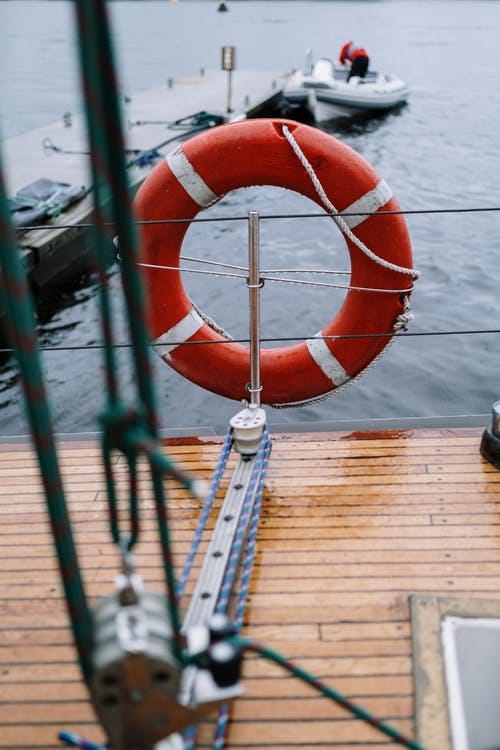Self-Care and Immigrant Children (Part 2: How to Find What Recharges Us) (#46) 🔋
Hello beautiful people,
I’m writing to you nine weeks out from my last issue after announcing a three-week cadence I intended to stick to. Evidently, I couldn’t do it. Since my last issue on February 9th, the chaos of a new job has overtaken my life and it’s been impossible to juggle LWH🏡 alongside those new responsibilities.
I feel terrible about this. It definitely feels like I let myself down.
Ironically, the last issue I published was about the importance of self-care for immigrant children. I took my own advice and resisted the urge to push something subpar out, harming myself in the process.
I haven’t decided whether I will continue LWH🏡 or pause it amidst this messy beginning portion where I’m still acclimatizing to work. My decision will be coming down the pipes in the next few weeks. Until then, please enjoy part two of the two-part series on self-care.
Reply to this email with your thoughts if you have a quick second. I love hearing how and if the ideas here resonate with the folks reading them.
Thanks for being patient. Let’s get to it.
Self-Care and Immigrant Children (Part 2: How to Find What Recharges Us)
In the previous issue, we discussed why self-care is so hard for high-achieving immigrant children. We explored how a life of rigid structure and high expectation has conditioned us to only feel valuable when progressing towards our goals, and how many of us have never been afforded the space to try new things without feeling embarrassed, wasteful, or competitive.
For this issue, I want to explore useful ways of doing the nebulous and amorphous work of defining self-care for ourselves, a radical pursuit in a world where syllabuses detail exact expectations and task lists are prescribed. It will require some creativity, independent thought, and introspection, which I know is foreign and uncomfortable for those of us in most dire need of the message.
The primary utility of self-care is to treat burnout, either preventatively or in acute crises. It’s revitalizing nourishment and imperative for anyone seeking long-term, sustained results. Self-care evokes images of spas and face masks and junk food in front of a TV, but for most of us, it might not mean those things at all.
The secret about self-care is that identifying which activities provide the benefits of self-care to us as individuals is deceptively complex. Below, I outline what I believe to be the most reliable strategies for discovering which activities will re-energize and relax us so we can return to the chaos of our lives with a renewed sense of purpose and motivation.
Autotelic Activities
Mihaly Csikszentmihalyi writes about autotelic activities (auto- and -telic from the Greek roots for “self” and “goal”, respectively) where the activity is the end goal. In autotelic activities, the means are themselves the ends and there is no overarching objective beyond intrinsic satisfaction.
For the immigrant child trapped in a state of perpetual preparation, spending time to do something without material output feels foolish and irresponsible. We are trained to urgently align ourselves to the next objective to get furthest ahead. In the absence of an upcoming assessment (i.e., after completing a licensing exam, a dissertation defense, or a performance review), however, high-achieving immigrant children feel directionless and restless, unsure with what to do with themselves.
The concept of an autotelic activity feels foreign. Despite the ever-present desire to recharge by doing something we love, we have no clue where to start. We settle on doing something we like (e.g., watching TV) to distract us from our deep exhaustion and emerge from that passive consumption barely feeling recharged at all.
Ultimately, there’s no silver bullet. Self-help gurus and lifestyle bloggers will sell us stereotypical forms of self-care (e.g., deep breathing exercises, cooking classes, and manicures) and while all those things may be self-care to some of us, simply doing what someone else prescribes as self-care will never reliably lead to results. Self-care is deeply dependent on the “self”. It’s personal. And discovering what constitutes self-care is a deeply personal journey too.
1. Experiment
Why We Don’t Experiment
Children who perform excellently in school are generally good at following instruction. They learned the behaviours correlated with high performance early on and continued to engage in those behaviours throughout their academic journey, evolving more complex and nuanced techniques as needed. Essentially, they quickly figured out which game they were playing, and continued to play it extremely well.
In the context of high performance in an academic setting, trying something new is a poor strategy. Thousands of students before us have outlined tried and true methods for achieving results, and re-designing their methods makes little sense. After all, the stakes are too high. The consequences of doing poorly in school can be catastrophic, our dreams dashed. It could jeopardize our long term plans for professional success. We have seen far too many horror stories to be hopeful.
After all, plenty of model students with exceptional grades still somehow elude admission into competitive graduate schools or get eliminated from the running for their dream job. Experimentation becomes synonymous with carelessness and our muscle for it atrophies.
Our current methods of relaxation get us by, but as Jim Collins puts it, “good is the enemy of great”. It never occurs to us to find activities that more deeply re-energize us since we do things that feel sufficient right now. Finding new activities sounds time-consuming and effortful.
But unfortunately, our exhaustion will eventually catch up to us and we will burn ourselves out, incapacitated by the demands of our daily life. Finding genuine and personalized self-care activities that are as unique as we are can no longer be thought of as a luxury, but a necessity long ignored.
How to Experiment
At the beginning, it’s a numbers game. People who aren’t accustomed to experimentation struggle with feeling like they need to master the skill when trying something new, or take it personally when they inevitably perform poorly. They feel like incompetent failures, and that couldn’t be further from the truth.
A hyper-focus on the external world numbs us to our internal nudges and prods. Getting lost in something requires us to quiet the constant self-monitor that incessantly critiques our performance and informs us on whether we are being impressive enough to real or imagined onlookers. That relentless self-monitor markedly prevents us from losing ourselves in the current moment and staying in the present. We can’t hear the whisper of thrill amidst the shrill and panicky voice of our abusive internal monologue.
Successful experimentation requires us to completely detach the quality of our experience from whether we feel competent. This is extremely counter-intuitive for most of us. Every part of our being shouts at us to abandon what we’re not good at. Finding our self-care, however, requires us to wholeheartedly throw ourselves into new activities without expectation of a specific outcome. When we get out of our heads, we give the exhaustion permission to leave our minds too.
The world is unimaginably big, with more fun activities and experiences than we can enjoy in a lifetime. We certainly don’t need to toil away doing something we don’t love with the hope that we grow to like it. When we’ve exhausted the full gamut of possibilities and still don’t know what feels regenerative, we can consider retrying some of our past activities, but that should be a long way away. At the beginning, again, it’s a numbers game.
But what to specifically look for when we’re trying new things?
2. Identify Play
We feel regenerated when we’re doing something fun, but our sense of play is suffocated by our relentless need to be productive. We’ve forgotten how to play, and it’s a shame since playing is, definitionally, regenerative.
Sadly, we’d be hard-pressed to find a high-achieving immigrant child in their late 20s who would be able to even identify the last time they “played”. They’d ask you to reframe the question, maybe define play, desperate for some loophole that allows them sell “watching TV” as a playful activity. Ironically, a generation of young men and women infantilized by a decade of post-secondary education, overbearing parents, and delayed income can’t enjoy the best thing about being a child: the freedom to play.
In a world yet to be conquered, “play” sounds painfully frivolous. Yet, as widespread burnout and stress-related complications become ubiquitous, reframing play as self-care might provide a much needed life jacket for those struggling to keep their head above water.
Where in our life do we have the freedom to be silly? Where is goofiness a virtue? Where can we allow our curiosity to take the wheel for a few hours, unencumbered by the beckon of responsibility?
Play has no agenda. The only way to be bad at play is to be mean to others with whom you happen to be playing. Sometimes play comes in the form of competition, and generally speaking, high-achieving people will align themselves to competitive play since they understand the emotions and mechanics of competition (they’ve been winning games their whole lives).
When beginning the journey of identifying play, I would suggest experimenting with non-competitive play to avoid falling into the trap of defining playing as winning. Tying ourselves to the hope of winning makes us vulnerable to pain/stress when losing. It further reinforces we’re not good at something and shuts us off from exploring whether the activity itself is fun or regenerative. Competition is absolutely welcome when competitive play is one of the many forms of self-care in our toolkits, but when we are in crisis mode attempting to resuscitate a limp and nearly lifeless sense of play, competition may be a dangerous thing to introduce.
Time Will Always Be Taken
We can’t think ourselves out of burnout. It’s impossible. Reframing our experiences might help, but self-care is not a cerebral activity. It’s movement. We must find which activities will jostle us out of the neural ruts in which we’re trapped from days, months, or years of damage.
That means that we must experiment with new activities until we find what feels like play. Not to strengthen some university application, not to learn something new to make us more valuable employees, not for some gatekeeper to write us a glowing reference letter, but because it’s fun. Full stop.
If we are committed to the long game and want to find material success for ourselves and our families for generations to come, understanding what regenerates us and prepares our bodies for the next sprint is not preferable, it’s imperative. Truthfully, we can’t afford to not figure this out, the stakes are just too high.
I’m anxious about a generation of high-achieving immigrant children riddled with self-destructive behaviours and mental illnesses in a decade’s time because they never saw the importance of refuelling with little nutrient gel packs on the marathon of life. I’m anxious about the parents these men and women will become and what kind of trauma they will bequeath to their kids, all because they never took the time to learn who they were and what their needs were beyond food, water, and shelter.
The thing is, time will always be taken. Our choice is to take it voluntarily when we’re younger to lead a more sustainable life, or to have it be taken from us involuntarily through stress-related illnesses when we’re older, when we would rather spend time raising our kids, being a good partner for our spouse, and providing value to the organizations we find fulfilling.
I hope that someone reading this amidst the numb exhaustion of burnout finds enough strength to break the inertia of their monotonous life and try something new with the goal of finding play. And when they inevitably don’t find play with the very first thing, they find the strength all over again to try the next thing, over and over until eventually they find it. And the clouds part and they feel a sunlit elation that accompanies regenerative relaxation. They will approach the effortful parts of their life with a renewed motivation and sense of purpose, providing unimaginable value to their friends, their families, their co-workers, and most importantly, themselves.
It all starts with recognizing that we could all take a little bit better care of ourselves, and what that looks like is slightly different for us all.
Regenerated,
Vandan🏡
@vandan_jhaveri







